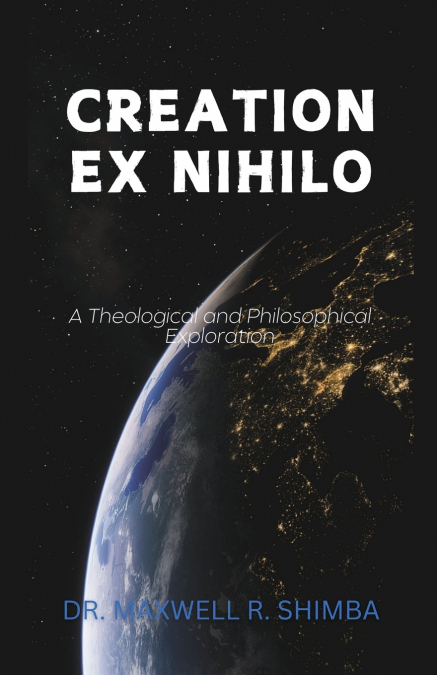
Maxwell R. Shimba
*Creation Ex Nihilo* by Dr. Maxwell Shimba is a profound exploration of the theological doctrine that posits God as the creator of the universe out of nothing. This book delves into the historical, philosophical, and theological foundations of this belief, offering readers a comprehensive understanding of how it has shaped religious thought throughout the centuries. Dr. Shimba meticulously examines the roots of Creation Ex Nihilo in ancient religious texts, particularly within the Judeo-Christian tradition, and traces its development through the writings of early Church Fathers, medieval scholars, and modern theologians.The book is divided into several sections, each addressing a different aspect of the doctrine. In the opening chapters, Dr. Shimba provides an in-depth analysis of the biblical foundations of Creation Ex Nihilo, focusing on key passages from the Old and New Testaments. He argues that the idea of creation out of nothing is not just a theological construct but is deeply embedded in the scriptural narrative, reflecting the profound relationship between God and creation. This section also highlights how this doctrine underscores God’s omnipotence and sovereignty, reinforcing the belief that the universe exists solely because of God’s will.Dr. Shimba then transitions into a philosophical exploration of the doctrine, engaging with classical and contemporary philosophical debates about existence, causality, and the nature of nothingness. He contrasts Creation Ex Nihilo with other creation theories, such as creation ex materia (creation out of pre-existing material), and examines the implications of each for our understanding of God and the universe. Through this philosophical lens, the book explores how Creation Ex Nihilo provides a coherent explanation for the origins of the universe and addresses some of the most challenging metaphysical questions about the nature of being and non-being.One of the book’s strengths is its interdisciplinary approach, as Dr. Shimba also engages with scientific perspectives on the origins of the universe. He discusses how modern cosmology, particularly the Big Bang Theory, intersects with and sometimes challenges traditional theological views on creation. However, rather than seeing science and theology as opposing forces, Dr. Shimba advocates for a dialogue between the two, suggesting that both can offer valuable insights into the mystery of creation. This section of the book is particularly relevant for readers interested in the relationship between science and religion.Throughout *Creation Ex Nihilo*, Dr. Shimba also addresses the ethical and existential implications of the doctrine. He explores how the belief in a created universe influences our understanding of human dignity, moral responsibility, and the meaning of life. By affirming that the universe and humanity were brought into existence with purpose, the doctrine provides a foundation for ethical behavior and a sense of purpose that transcends individual existence. Dr. Shimba argues that this understanding of creation can inspire a more profound respect for life and the environment, encouraging a more responsible stewardship of the world.In conclusion, *Creation Ex Nihilo* by Dr. Maxwell Shimba is a thorough and thought-provoking examination of one of the most significant doctrines in Christian theology. It offers readers a detailed exploration of the historical, philosophical, and scientific dimensions of the doctrine, while also reflecting on its implications for faith, reason, and ethics. Dr. Shimba’s work is a valuable contribution to contemporary theological discourse, providing a rich resource for scholars, students, and anyone interested in the intersection of religion, philosophy, and science.